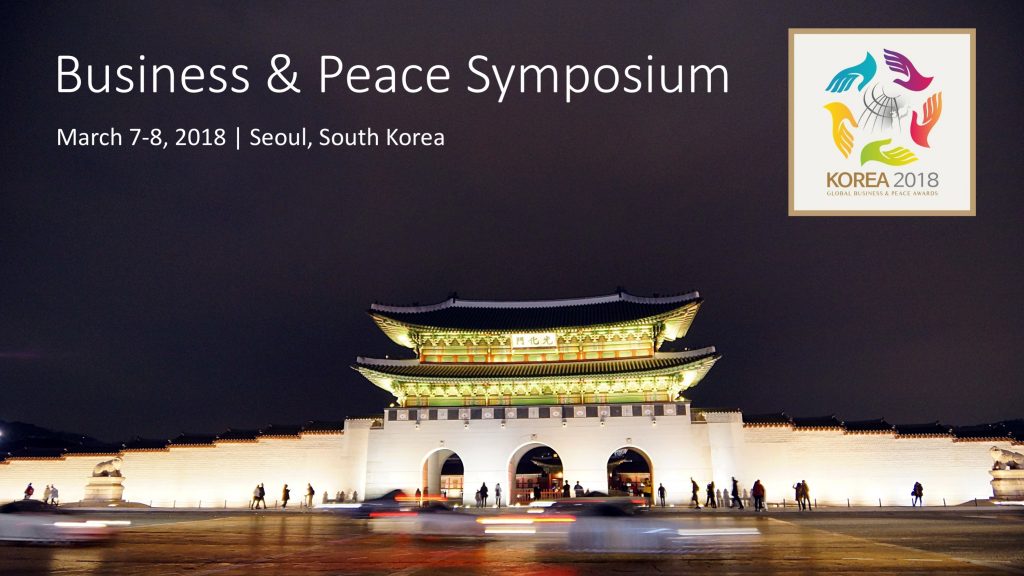 At their first meeting in two years, North and South Korea agreed to defuse tensions, beginning with the North’s participation in the Olympics. This makes a reality of the hope stated repeatedly by Korean authorities and the PyeongChang Winter Olympic organizers that this would be the Olympics of Peace.
At their first meeting in two years, North and South Korea agreed to defuse tensions, beginning with the North’s participation in the Olympics. This makes a reality of the hope stated repeatedly by Korean authorities and the PyeongChang Winter Olympic organizers that this would be the Olympics of Peace.
As part of this peace initiative, the Religious Freedom & Business Foundation — in collaboration with the Global Compact Network Korea, the United Nations Global Compact Business (UNGC) for Peace platform, and the UN Alliance of Civilizations (UNAOC) — will hold a global business and peace symposium as the Winter Olympics close and the Winter Paralympics begin.
Former United Nations Secretary General Ban Ki-moon will keynote the March 7-8 Global Business & Peace Symposium. H.E. Ban Ki-moon established the Business for Peace platform in 2013 within the UNGC, the world’s largest corporate member organization committed to the Sustainable Development Goals, which notably include SGD 16 (Peace).
Soon after the establishment of Business for Peace, the Religious Freedom & Business Foundation launched the Global Business & Interfaith Peace Awards, which are given out in the host country of each Summer and Winter Olympic and Paralympic Games. The inaugural awards were given the day before the opening of the Rio Paralympics, and this year’s awards will be given in Seoul the day before the opening of the 2018 PyeongChang Winter Paralympics.
The awards will be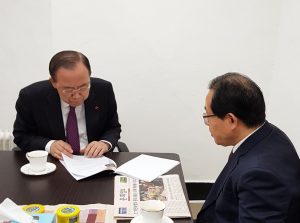 given along with other awards at the 2018 Global Business and Peace Symposium. Special honors will be given to business leaders who have worked to advance peace with North Korea, including some involved with the Kaesong Industrial Complex (KIC), located inside North Korea just across the demilitarized zone from South Korea. The project was launched in 2004, largely financed by the South to increase co-operation. The Complex was abruptly closed on February 10, 2016 by former Korean President Park Geun-hye’s administration. The incumbent President of South Korea, Moon Jae-in, has indicated a desire to “reopen and expand” the region. Of course, that now depends on progress with the security situation.
given along with other awards at the 2018 Global Business and Peace Symposium. Special honors will be given to business leaders who have worked to advance peace with North Korea, including some involved with the Kaesong Industrial Complex (KIC), located inside North Korea just across the demilitarized zone from South Korea. The project was launched in 2004, largely financed by the South to increase co-operation. The Complex was abruptly closed on February 10, 2016 by former Korean President Park Geun-hye’s administration. The incumbent President of South Korea, Moon Jae-in, has indicated a desire to “reopen and expand” the region. Of course, that now depends on progress with the security situation.
Pictured at left is H.E. Ban Ki-moon reviewing the details of the Global Business & Peace Symposium and Awards.
Previously, H.E. Ban Ki-moon participated in the first UNAOC’s business and peace symposium at the 2014 UN Alliance of Civilizations (UNAOC) meeting in Bali, Indonesia. At that meeting, a joint publication was launched between the Religious Freedom & Business Foundation, Indonesian Global Compact Network (IGCN), and the UNGC’s Business for Peace Platform. Mr. Ban is pictured below with the research report, “Business: A Powerful Force Supporting Interfaith Understanding & Peace.”
Indeed, as the report showed, interfaith understanding – and its contribution to peace – is in the interest of business. The report highlights several key areas where this is clear:
- Recent research shows that economic growth and global competitiveness are stronger when social hostilities involving religion are low and Government respect for, and protection of, the universally recognized human right of freedom is high.
- Interfaith understanding also strengthens business by reducing corruption and encouraging broader freedoms while also increasing trust and fostering respect. Research shows that laws and practices stifling religion are related to higher levels of corruption. Similarly, religious freedom highly correlates with the presence of other freedoms and a range of social and economic goods, such as better health care and higher incomes for women.
- Positively engaging around the issue of interfaith understanding also helps business to advance trust and respect with consumers, employees and possible partner organizations, which can give companies a competitive advantage as sustainability and ethics come to the forefront of corporate engagement with society.
- With the shared vision of a more sustainable and inclusive global economy that delivers lasting benefits to people, communities and markets, it is clear that companies can make significant contributions to advancing interfaith understanding and peace through both core business and outreach activities. The examples in this publication offer an important step forward in providing companies with guidance on why and how they can make practical contributions in this area – in ways benefitting both their business and the societies where they operate.
IGCN president, Y.W. Junardy, took home the gold medal at the 2016 Global Business & Interfaith Peace Awards.

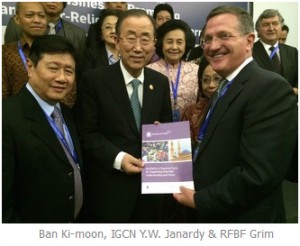







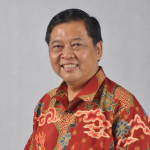

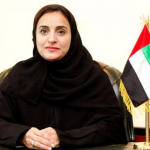





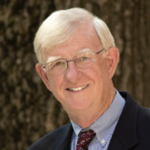

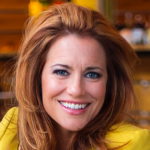
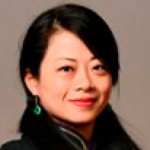




 The Emirati capital of Abu Dhabi is due to host the fourth round of the Forum for Promoting Peace in Muslim Societies December 11-13 . The Forum is held under the patronage of Emirati Minister of Foreign Affairs and International Cooperation Sheikh Abdullah bin Zayed Al Nahyan.
The Emirati capital of Abu Dhabi is due to host the fourth round of the Forum for Promoting Peace in Muslim Societies December 11-13 . The Forum is held under the patronage of Emirati Minister of Foreign Affairs and International Cooperation Sheikh Abdullah bin Zayed Al Nahyan.


